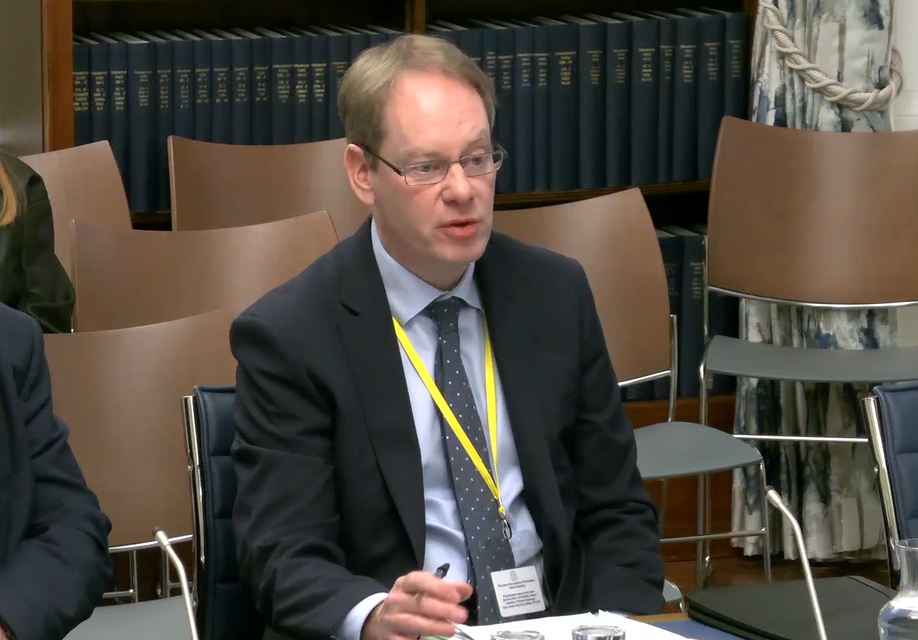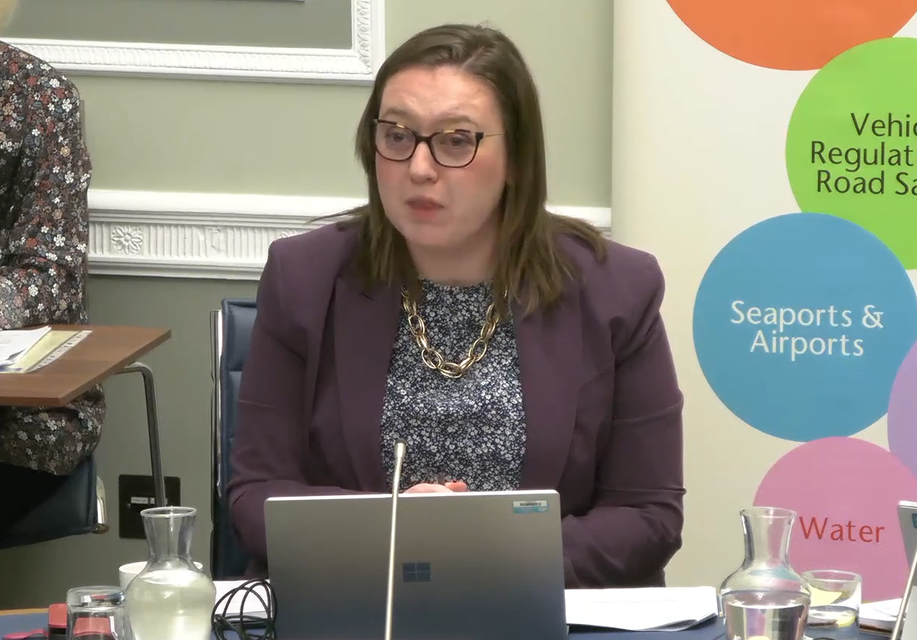Cash reserves held by Northern Ireland’s public transport operator Translink are set to drop to an “unsustainable level”, MLAs have been warned.
Officials from the public corporation said this is due to funding cuts and increased costs including inflation, increase in national insurance contributions, storm damage and sustaining a concessionary fare scheme.
Translink’s cash reserves are expected to be down from £30 million to £23 million by the end of this financial year.
Appearing at the Stormont Infrastructure Committee on Wednesday, Translink’s chief financial officer Ronan O’Doherty said public transport in Northern Ireland has “suffered years of underinvestment” compared with other regions of the UK and with the Republic of Ireland.
Ronan O’Doherty, chief financial officer of Translink, gives evidence to the Stormont Infrastructure Committee (NI Assembly/PA)
He said their resource funding for 2024/25 was 9% lower than in the previous year, while capital funding was 10% lower.
“The current resource funding figure for Translink of £153 million will see Translink make a significant loss this year, and without an adjustment to funding levels, will reduce cash reserves to an unsustainable level going forward,” he told MLAs.
“Translink believes the budget for the upcoming 25/26 year needs to be re-baselined to 23/24 funding levels, a year when we recorded a very small loss.
“We also need to take into account the growing share of the funding that’s being utilized on the concessionary fare scheme, ongoing inflationary pressures which are faced right across Northern Ireland, the impacts of the more frequent storm and flood damage and climate resilience requirements that we’ve been seeing an increase in incidents of in recent years, and then also the employer National Insurance legislative increase that will come in April 2025.
“In addition to that, there’s clearly the need to grow our public transport network to achieve modal shift as is required under the Climate Change Act.”
Mr O’Doherty said Translink has delivered efficiencies, introduced new technology and invested in capital projects to enhance its network such as the new Grand Central Station in Belfast.
He said passenger numbers are growing and have returned to pre-pandemic levels of just under 82 million passenger journeys in a year, with further growth targeted.
Stormont Infrastructure Committee chairwoman Deborah Erskine (NI Assembly/PA)
Questioned by committee chair Deborah Erskine, Mr O’Doherty said there is no immediate risk to services as they have been effectively reducing cash reserves to maintain services.
He explained Translink has received around 90% of the funding they need in recent years.
“So ultimately at the minute, we’re seeing further reduction in our cash reserves and I suppose the issue going forward is that’s not sustainable in the long term,” he said.
“Cash reserves at the moment would be at around £30 million and at the end of this financial year we expect to be at around £23 million.
“We had an independently assessed metric that for working capital, day-to-day requirements, Translinks’ cash reserves really shouldn’t be below £30 million.”
He also explained the reason for £30 million being aimed for is that it is equivalent to a month’s cost of running Translink.
“It’s effectively to give you a buffer for ups and downs, but also in terms of our overall cash and the cost base, £30 million is broadly just over one month’s costs. It’s an enormous sum of money but in terms of the ins and outs within the business, it’s effectively managing those two things.”
Meanwhile, Ian Campbell, director of service operations at Translink, said they have put a business case forward for £600,000 for one year to increase night services, principally bus services.
“We have already introduced some later night services on a Friday and Saturday night, but we would like to expand those going forward.
“We had a very successful run up to Christmas with night services that we put on over those four weeks. We carried an extra 17,000 people, which shows that there is a demand.
“So we believe in the great scheme of things, that it’s a relatively modest amount for what could be achieved, both in terms of people’s social lives, but also the hospitality industry as well.”
He said they are also looking into expanding Goldline services on rural routes.
He emphasised that public transport isn’t a solution for everybody, but it has to be made accessible to become a solution for everybody.
MLAs also heard that an estimation of almost £2 million has been made in terms of the cost of damage to the network caused by Storm Eowyn last month.
They were told that while damage continues to be reported, around 150 trees fell around tracks and the network and 10 barrier ramps were damaged and needed urgent repairs.

